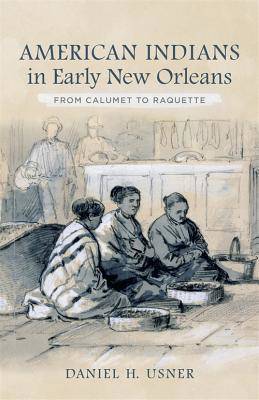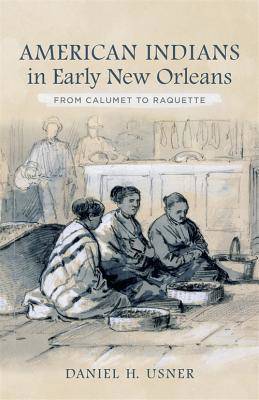
En raison d'une grêve chez bpost, votre commande pourrait être retardée. Vous avez besoin d’un livre rapidement ? Nos magasins vous accueillent à bras ouverts !
- Retrait gratuit dans votre magasin Club
- 7.000.000 titres dans notre catalogue
- Payer en toute sécurité
- Toujours un magasin près de chez vous
En raison de la grêve chez bpost, votre commande pourrait être retardée. Vous avez besoin d’un livre rapidement ? Nos magasins vous accueillent à bras ouverts !
- Retrait gratuit dans votre magasin Club
- 7.000.0000 titres dans notre catalogue
- Payer en toute sécurité
- Toujours un magasin près de chez vous
55,45 €
+ 110 points
Description
From a peace ceremony conducted by Chitimacha diplomats before Governor Bienville's makeshift cabin in 1718 to a stickball match played by Choctaw teams in 1897 in Athletic Park, American Indians greatly influenced the history and culture of the Crescent City during its first two hundred years. In American Indians in Early New Orleans, Daniel H. Usner lays to rest assumptions that American Indian communities vanished long ago from urban south Louisiana and recovers the experiences of Native Americans in Old New Orleans from their perspective.
Centuries before the arrival of Europeans, American Indians controlled the narrow strip of land between the Mississippi River and present-day Lake Pontchartrain to transport goods, harvest resources, and perform rituals. The birth and growth of colonial New Orleans depended upon the materials and services provided by Native inhabitants as liaisons, traders, soldiers, and even slaves. Despite losing much of their homeland and political power after the Louisiana Purchase, Lower Mississippi Valley Indians refused to retreat from New Orleans's streets and markets; throughout the 1800s, Choctaw and other nearby communities improvised ways of expressing their cultural autonomy and economic interests--as peddlers, laborers, and performers--in the face of prejudice and hostility from non-Indian residents. Numerous other American Indian tribes, forcibly removed from the southeastern United States, underwent a painful passage through the city before being transported farther up the Mississippi River. At the dawn of the twentieth century, a few Indian communities on the north shore of Lake Pontchartrain continued to maintain their creative relationship with New Orleans by regularly vending crafts and plants in the French Market. In this groundbreaking narrative, Usner explores the array of ways that Native people used this river port city, from its founding to the World War I era, and demonstrates their crucial role in New Orleans's history.Spécifications
Parties prenantes
- Auteur(s) :
- Editeur:
Contenu
- Nombre de pages :
- 208
- Langue:
- Anglais
Caractéristiques
- EAN:
- 9780807170090
- Date de parution :
- 10-09-18
- Format:
- Livre relié
- Format numérique:
- Genaaid
- Dimensions :
- 199 mm x 224 mm
- Poids :
- 403 g

Les avis
Nous publions uniquement les avis qui respectent les conditions requises. Consultez nos conditions pour les avis.






